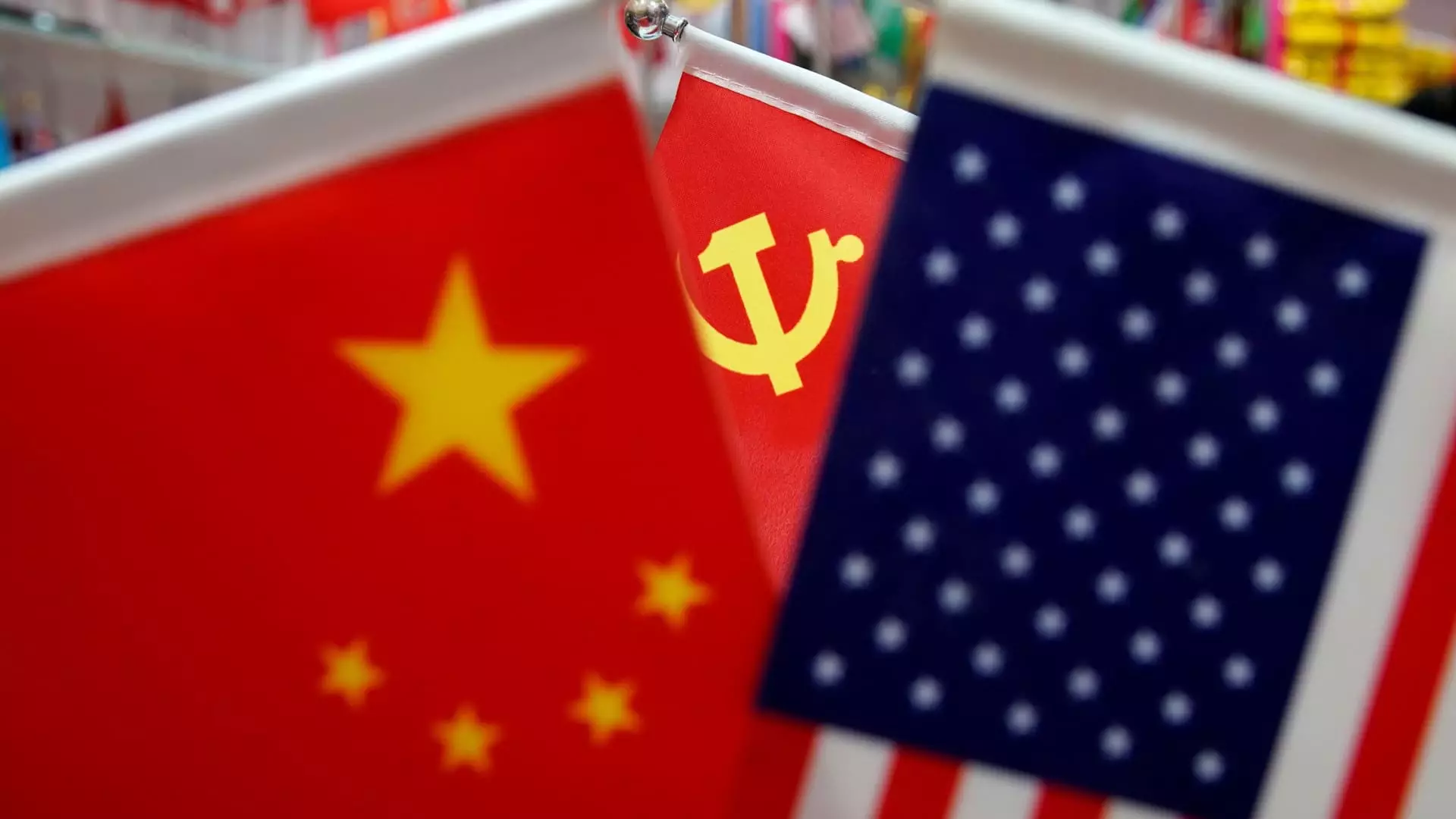The ongoing trade discussions between the United States and China have become a theatrical spectacle, full of dramatic exchanges and unmet expectations. President Donald Trump recently characterized the negotiation process with Chinese President Xi Jinping as “extremely hard,” revealing the depth of the impasse between the two global giants. It’s chaotic, and it suggests a lack of strategic foresight on both sides. When a leader openly admits that reaching an agreement is difficult, you know that something has gone terribly wrong. The fact that Trump has maintained a somewhat cordial relationship with Xi, while simultaneously acknowledging the offense of these inflated complexities, highlights a critical inconsistency in diplomacy.
Despite the Trump administration’s repeated assertions that progress is being made, reports of stalled trade talks have emerged. Scott Bessent, the U.S. Treasury Secretary, recently indicated that without active participation from the top leaders, the negotiations would continue to bobble without significant direction. In the world of international relations, ineffectiveness is a dangerous game. It breeds mistrust, leading to geopolitical rifts that have repercussions far beyond just economic troubles.
The Reality of Tariff Violations
It’s easy to point fingers amidst the chaos and blame the counterpart for violating agreements. In this case, both Washington and Beijing share the burden of responsibility for breaching terms established in their previous discussions, particularly a deal struck on May 12 that promised a 90-day tariff suspension. Such breaches demonstrate not only a lack of integrity but also an inability to honor commitments. For a country that positions itself as a global leader, the United States should be setting a standard for dealings by upholding commitments that promote mutual economic benefit rather than engaging in tit-for-tat tactics.
Moreover, China’s reluctance to ease restrictions on rare earth elements—a cornerstone of advanced technology—has added another layer of frustration for the U.S. As Trump’s administration looks to curb the technological advantage that China has amassed over the years, it’s clear that both parties need to reassess their negotiating tactics if they wish to avoid mutual destruction to their economies.
Hostile Actions Threaten Future Communication
The Trump administration’s recent decision to revoke visas for Chinese students is not just a mere logistical maneuver; it’s emblematic of a broader strategy that risks alienating the U.S. from its key trading partner. Actions like this send a clear message: peaceful dialogue is not the priority, hostility is. Chinese Foreign Minister Wang Yi aptly pointed out that these “negative measures” were based on “groundless reasons,” trivializing China’s legitimate demands and further eroding the fragile trust between the two countries.
In a globally interconnected world, it’s crucial to maintain avenues of communication. Yet, the current U.S. trajectory appears to be moving towards confrontation rather than cooperation. Is it fair to criticize Xi for being unyielding when the U.S. is simultaneously wielding punitive measures like a stick? Trust cannot be built upon fear or intimidation.
The Need for a Balancing Act
Trump’s call for Xi to “meet halfway” during a time when U.S. actions are isolating China raises questions of fairness in bilateral relationships. If the U.S. is genuinely interested in a successful resolution to trade tensions, both parties must cultivate an atmosphere conducive to open dialogue. For Trump to hope for mutual respect and fruitful discussions, there must be an understanding that walls cannot be sufficiently climbed through empty gestures.
Analysts predict that China would only agree to a meeting if assurances are given that the U.S. won’t make any unexpected moves. The lack of stability in the negotiation process is crippling, and it’s evident that without a recalibration of approaches, any potential conversations between Trump and Xi will likely be futile.
As we navigate the murky waters of international trade relations, the responsibility rests on leaders like Trump to engage diplomatically and responsibly. The world watches and waits, but inaction or posturing will only lead to disastrous consequences for both nations. Economic stability depends on collaboration, not conflict. If there’s any hope for averting an economic disaster, a new strategy must emerge—one that emphasizes fair negotiations, mutual respect, and a commitment to move forward rather than behind closed doors.

